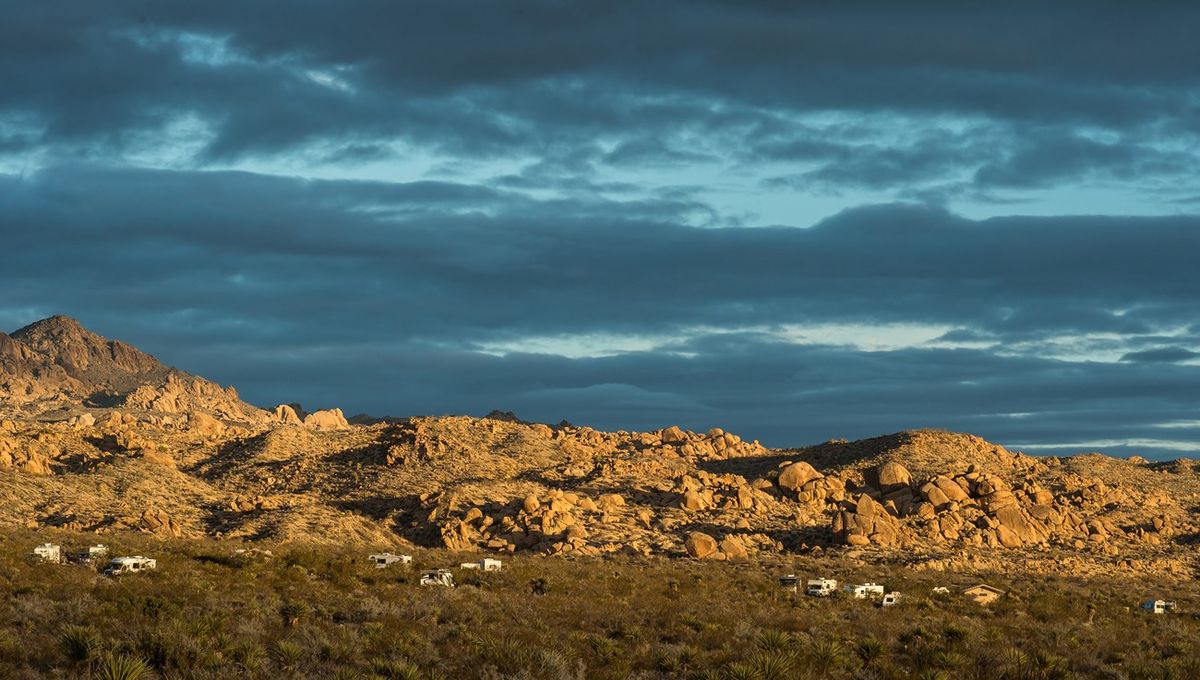
Park officials from Joshua Tree National Park in California have had to close parts of the grounds to visitors as a safety precaution, after a need for water brought a whole bunch of bees into the area.
The temporary closure was announced by the park earlier this week on Instagram, and applies to the Cottonwood Visitor Center, parking area, restrooms, and campground.
An uptick in the number of bees buzzing about isn’t necessarily unexpected in the warmer months of the year. “In the summer, water becomes scarce and bees seek water sources just like our other park wildlife,” the post from park officials reads.
But that water doesn’t just come from the first sources you might think of, like lakes and rivers; the combination of humans and a national park can bring with it some more unique sources of moisture for the bees, including “condensation from air conditioners, visitor sweat, and bathrooms,” driving the bees to swarm in those places.
Commenters who had recently visited the park appear to attest to that, describing cars getting swarmed and “full-on” attacks directed toward sweaty people.
As a result, the Cottonwood area was closed to visitors “for safety and to reduce the moisture that attracts the bees in the summer,” officials explained. “This closure will reduce the water available for bees and give them time to leave the area.”
For how long the closure will remain in place is unclear, with the park telling a commenter on the post that it “depends on bee activity, but can be about a week.” As of Saturday, according to the National Park Service website, the closure alert is still active.
With the summer bringing bees to more than just Joshua Tree, it can be handy to know how to stay safe around them – they might be some of the most helpful insects about, but their stings can be dangerous for those who are allergic.
The Carl Hayden Bee Research Center in Arizona has some top tips for bee safety:
- Stay away from bee colonies – keep an ear out for buzzing, as they won’t always be visible, with some preferring to nest under rocks.
- Wear appropriate clothing – hiking is one of the best ways to enjoy national parks, but making sure your gear is light-colored can help keep bees away.
- Avoid wearing scents – bees can be sensitive to particular scents, including citrus, which is known to aggravate honeybees.
If you do get caught up with an aggressive bee, or a swarm of them, the advice is to run away quickly to an enclosed shelter, protecting your head and face with your shirt or arms whilst doing so.
Source Link: Buzz Off: Thirsty Bees Cause Closures In Parts Of Joshua Tree National Park